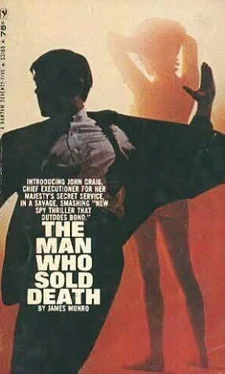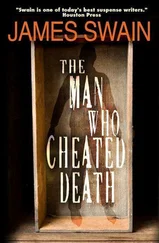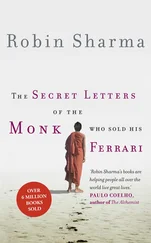James Munro - The man who sold death
Здесь есть возможность читать онлайн «James Munro - The man who sold death» весь текст электронной книги совершенно бесплатно (целиком полную версию без сокращений). В некоторых случаях можно слушать аудио, скачать через торрент в формате fb2 и присутствует краткое содержание. Жанр: Шпионский детектив, на английском языке. Описание произведения, (предисловие) а так же отзывы посетителей доступны на портале библиотеки ЛибКат.
- Название:The man who sold death
- Автор:
- Жанр:
- Год:неизвестен
- ISBN:нет данных
- Рейтинг книги:3 / 5. Голосов: 1
-
Избранное:Добавить в избранное
- Отзывы:
-
Ваша оценка:
- 60
- 1
- 2
- 3
- 4
- 5
The man who sold death: краткое содержание, описание и аннотация
Предлагаем к чтению аннотацию, описание, краткое содержание или предисловие (зависит от того, что написал сам автор книги «The man who sold death»). Если вы не нашли необходимую информацию о книге — напишите в комментариях, мы постараемся отыскать её.
The man who sold death — читать онлайн бесплатно полную книгу (весь текст) целиком
Ниже представлен текст книги, разбитый по страницам. Система сохранения места последней прочитанной страницы, позволяет с удобством читать онлайн бесплатно книгу «The man who sold death», без необходимости каждый раз заново искать на чём Вы остановились. Поставьте закладку, и сможете в любой момент перейти на страницу, на которой закончили чтение.
Интервал:
Закладка:
When peace came, the men who would do best would be those who had deliberately allowed their personalities to be molded by war: the men who had learned to act, decisively and at once; the men who had learned, whatever happened, to survive; and the men who had learned to be gentlemen. "That's always what the English look for," he said. "Gentlemen. You must be a gentleman too."
Craig considered his background; slum house, orphanage, and Devonport barracks. He found it inadequate.
"I don't see how I can," he said.
"Get a commission," said McLaren. "Royal Navy. Special Boat Service. You'll look well with a commission. Then get rid of your accent."
"You didn't."
"I'm not going to be a gentleman. I'm going to be a schoolmaster," McLaren said. "That's why I'm going back to Glasgow University-if I live that long. And anyway my' accent is socially acceptable. Yours isn't."
"Why should I be a gentleman?" Craig asked with alcoholic earnestness, and McLaren beamed at him.
"I like you," he said. "Always asking the right questions.
Good for my Socratic method. Every philosopher should be issued with a leading seaman full of whisky. Basic equipment… You should be a gentleman because you're not fit to be anything else. It's either that or piracy. That's all you know. You get yourself a commission. It's safer."
He took another pull at the bottle and gave Craig what was left, letting him finish it in silence.
It was early May, and the almond blossom smelled sweet, the cicadas softly chirred. Like a backcloth, the ruins of a Greek temple groped for the moon that silvered and softened the brutal Sicilian landscape to a comic-opera prettiness. Craig finished the whisky.
"Bastards," he said. "Bastard orphanage. Bastard pigs.* But wait till this lot's over. I'll show them."
McLaren looked at him. Even half-drunk he was as alert as a hunting leopard, the ruthlessness burned into him, never to come out.
"Aye," said McLaren. "You'll show 'em right enough."
From the temple there came the sound of pipes, and McLaren scrambled to his feet.
"That'll be the Jocks," he said.
Craig hesitated. In the village there was a widow who slept with him, giving him pleasure, wine, and Italian lessons all for a few cigarettes. On the other hand, McLaren had given him ideas, and an aim in life, and he was grateful. It wouldn't hurt to look at a few Jocks. They walked through the camp to a flat patch of earth already baked hard by the sun. A crowd of Scottish soldiers sat around watching, drinking Sicilian wine, and in the middle a kilted piper played, and six kilted men gravely danced.
The crowd didn't applaud; their emotional involvement was too deep. They simply sat and absorbed it all; the shrill sadness of the pipes, and the men dancing with a proud, masculine beauty. Someone produced two swords, and a boy of Craig's age did a sword dance on his own, a dance of such grace and power that McLaren sighed aloud.
"All this'll go too," he said. "The fag end of a culture.
* Lower deck slang for Naval Officer.
This is maybe the last time you'll have the chance to see fighting men dance."
"What for?" Craig asked. "What do they want to dance for?"
"Because it's art," said McLaren. "Ach, they mightn't like the word, but that's what it is. Art. A part of their lives. Every man there is dancing."
He looked at the lone, dancing man.
"They've been fighting at Catania," he said. "They won, but they took a hiding doing it. This makes them feel better."
The piper stopped, and the dancer picked up the swords.
This time the watching men roared out their applause. Another dancer appeared, but the piper shook his head, his hand already clutched around a bottle of wine. McLaren stood up, and dragged Craig after him.
"Come with me," he said. "I'll show you some more dying culture."
He pushed his way through the lounging men, and spoke in Gaelic to the new dancer. The boy grinned, and nodded, and McLaren began to sing. It was a high-pitched, intricate song, the rhythm strongly stressed, and McLaren sang it without appearing to draw breath; the caelidh mouth music that can take the place of fiddler or piper as long as the singer has strength. Gravely the boy danced, and the crowd of men was silenced once more. This time Craig didn't have to ask why. When he was older, and more sophisticated in his approach to experience, he would realize how hackneyed the situation was; kilted Highlanders dancing, in the middle of a war, among the ruins of an ancient civilization. But it was also beautiful, with a beauty that made the heart ache to see it. When McLaren had finished, he was weeping.
"Whisky and nostalgia," he said. "Nothing like it for a good cry."
Craig nodded. He could share McLaren's enthusiasm, and his melancholy, though he didn't know what nostalgia meant.
"Like before I went to the orphanage," he said at last. "Me da used to take me fishing sometimes. Seine-netter.
The crew was all in it together. You know. They had an old feller there used to sing. Old songs. They made you feel good."
McLaren said, "You ought to practice that story. It's the sort of thing gentlemen appreciate. They like to feel sentimental about the deserving poor."
Craig wasn't listening.
"When I was eleven, me mam ran off with a sailor. A steward on the King Line. The old man jumped off the pier, and I ended up in what they called a home. They didn't go fishing there. Mind you," he added, determined to be fair, "they taught you how to fight."
He had left McLaren then, and gone to find his widow.
He left the Gallery, and bought a paper. On the back page was a filler describing the death of a man called Altern in Geneva. Craig knew who Altern was. Rutter had been at that rest camp too. He had hoped with all his heart that they would not find out about Rutter. For a long time he stood by the Gallery steps, remembering Rutter as he had been in Greece, young and full of life, and dangerous with the need to prove how well a small man could do in a big man's world. He remembered a blazing E-boat and a nightmare chase in an olive grove. He remembered Rutter locked in combat with a blond, enormous, Panzer grenadier. Always Rutter had gone for the big ones, to show they weren't too big for him… He'd given up a P. amp; O. job to work for the Rose Line. Craig felt the salty sting of tears in his eyes, and shook his head angrily. Rutter had known what he was getting into. He'd known very well he might die. It would be nice to see McLaren again, Craig thought, and ask him if he'd done the right things with his life since the end of the war. Behind him the news vendor was speaking to him, asking him if he felt all right. Craig shook his head again and moved away, pushing into the crowd in Trafalgar Square, folding his paper neatly, holding it under his arm. Soon he was inconspicuous again.
He went back to his hotel, changed, and went out again. In his mood he knew that it was dangerous, that he should have stayed indoors, but his anger and grief were too strong for him. He had to go out. He drifted toward Soho, drinking steadily, until he reached an Italian restaurant in Greek Street. There he ate pasta as he and Rutter had enjoyed it, and drank a bottle of Orvieto. Then he wandered again, past the come-on girls in the clip joints, the barbecue grills and hamburger heavens, content to be forced along by the crowd, swerving from time to time into a pub.
He'd reached one in the Tottenham Court Road when he met the Irishman, Diamond, who splashed him with stout, then hung on to him for the rest of the evening, relishing his taciturnity with a talker's avid greed. When the pubs shut, they went to a club Diamond belonged to, the Lucky Seven, because it wasn't far away and Diamond knew a girl who went there sometimes. Diamond was a bookie's clerk with a taste for the theater, and he settled down to spend the rest of the night telling Craig the plot of every play he had ever seen. Craig didn't mind. From time to time they bought each other whisky, and he could think about Rutter behind the smoke screen of Diamond's unending chatter. Then the girl appeared, Diamond fussed busily, finding her a chair, buying her a drink, introducing her to Craig, then taking up his monologue in mid-sentence.
Читать дальшеИнтервал:
Закладка:
Похожие книги на «The man who sold death»
Представляем Вашему вниманию похожие книги на «The man who sold death» списком для выбора. Мы отобрали схожую по названию и смыслу литературу в надежде предоставить читателям больше вариантов отыскать новые, интересные, ещё непрочитанные произведения.
Обсуждение, отзывы о книге «The man who sold death» и просто собственные мнения читателей. Оставьте ваши комментарии, напишите, что Вы думаете о произведении, его смысле или главных героях. Укажите что конкретно понравилось, а что нет, и почему Вы так считаете.












